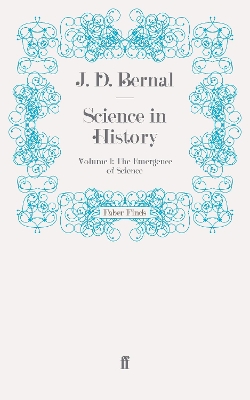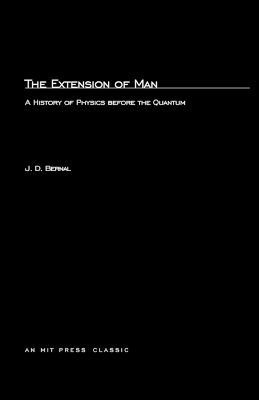The MIT Press
2 total works
J. D. Bernal's monumental work, Science in History, was the first full attempt to analyse the reciprocal relations of science and society throughout history, from the perfection of the flint hand-axe to the hydrogen bomb. In this remarkable study he illustrates the impetus given to (and the limitations placed upon) discovery and invention by pastoral, agricultural, feudal, capitalist, and socialist systems, and conversely the ways in which science has altered economic, social, and political beliefs and practices.
In this first volume Bernal discusses the nature and method of science before describing its emergence in the Stone Age, its full formation by the Greeks and its continuing growth (probably influenced from China) under Christendom and Islam in the Middle Ages.
Andrew Brown, Bernal's biographer, with a nice sense of paradox, has said of him, he 'was steeped in history, in part because he was always thinking about the future.' He goes on to say, 'Science in History is an encyclopaedic, yet individual and colourful account of the emergence of science from pre-historic times. There is detailed coverage of the scientific revolution of the Enlightenment, the Industrial Age and the first two-thirds of the twentieth century. . . The writing flows and is devoid of the tortured idioms that mar so many academic histories of science. After reading it, it is easy to agree with C. P. Snow's orotund observation that Bernal was the last man to know science.
Faber Finds are reissuing the illustrated four volume edition first published by Penguin in 1969. The four volumes are: Volume 1: The Emergence of Science, Volume 2: The Scientific and Industrial Revolutions, Volume 3: The Natural Sciences in Our Time, Volume 4: The Social Sciences: Conclusion.
'This stupendous work . . . is a magnificent synoptic view of the rise of science and its impact on society which leaves the reader awe-struck by Professor Bernal's encyclopaedic knowledge and historical sweep.' Times Literary Supplement
The late J. D. Bernal's lectures given to first-year students in physics at Birkbeck College, University of London, are presented here in their entirety, tracing the history of physics up to the end of the classical era at the end of 19th century, just before the discoveries of the subatom and relativity were made. In view of the prestige and profundity of the newer discoveries, Bernal felt that the classical era was being largely forgotten. In this book, he attributes a greater relevance to the work of men from the distant past than is usually given. For instance, the idea of "atom" not only retains the language of the Greek, Democritus, who first postulated it, but there is also an absolutely unbroken connection between the atom of the Greek and that of the modern physicist. Bernal felt that the historical method would be a suitable introduction to the fundamental concepts of physics, and it is hoped that the readers of the book will be able to see something of the interplay between the theoretical and practical aspects of the subject.

